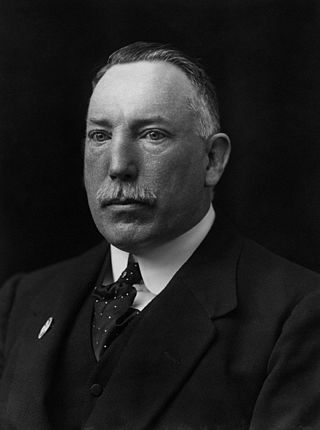The electoral threshold, or election threshold, is the minimum share of votes that a candidate or political party requires before they become entitled to representation or additional seats in a legislature.
Liberal Democracy of Slovenia is a social-liberal political party in Slovenia. Between 1992 and 2004, it was the largest party in the country. In the 2011 Slovenian parliamentary election, it failed to win entry to the Slovenian National Assembly. The party was a member of the Liberal International and the Alliance of Liberals and Democrats for Europe.

Belfast West is a parliamentary constituency (seat) in the House of Commons of the UK Parliament. The current MP is Paul Maskey of Sinn Fein.

Elections in Mauritania encompass four different types: presidential elections, parliamentary elections, regional elections and local elections.

The Pan-African Union for Social Democracy is a political party in the Republic of the Congo headed by Pascal Lissouba, who was President from 1992 to 1997. It has been the country's main opposition party since Lissouba's ouster in 1997. Pascal Tsaty-Mabiala has been Secretary-General of UPADS since 2006.

Elections in Niger take place within the framework of a semi-presidential system. The President and National Assembly are elected by the public, with elections organised by the Independent National Electoral Commission (CENI).

Elections in Togo take place within the framework of a presidential system. Both the President and the National Assembly are directly elected by voters. Togo is a one party dominant state with the Union for the Republic in power.

Spelthorne is a constituency in Surrey, represented in the House of Commons of the UK Parliament since 2024 by Lincoln Jopp, a Conservative. Its previous MP Kwasi Kwarteng did not stand for re-election in the 2024 general election.

The Third Republic was the planned republican government of Nigeria in 1992 which was to be governed by the Third Republican constitution. In the Third Republic, there were democratically elected state governors and state assemblies and a democratically elected federal legislature. The republic was however not fully democratic as there was no democratically elected civilian president. The then military president Ibrahim Babangida's supposed transition eventually turned out to be a ploy to keep executive powers and grant the National Assembly limited legislative powers. Hence all laws passed by the Senate and House of Representatives will have to pass the National Defence and Security Council of Nigeria and finally approved by the President. So while Babangida changed the usual style adopted by preceding military leaders from Head of State to president, he will continue to postpone presidential elections and eventually annul the ultimate one held on 12 June 1993. The Third Republic can thus be described as half military and half civilian.

Parliamentary elections were held in Nigeria on 12 April 2003. The result was a victory for the ruling People's Democratic Party, which won 76 of the 109 Senate seats and 223 of the 360 House seats. Voter turnout was 50%.

General elections were held in Sierra Leone on 26 and 27 February 1996 to elect the President and members of Parliament, with a second round of the presidential election on 15 March. They were the first elections since multi-party democracy had been reintroduced following a referendum on a new constitution in 1991, and the first multi-party elections held in the country since 1977.

The 1997 United Kingdom local elections took place on Thursday 1 May 1997 in England, and Wednesday 21 May 1997 in Northern Ireland. Elections took place for all of the English country councils, some English unitary authorities and all of the Northern Ireland districts. The local elections were held on the same day as the 1997 general election.

Legislative elections were held in South Korea on 12 April 1996. The result was a victory for the New Korea Party, which won 139 of the 299 seats in the National Assembly. Voter turnout was 63.9%. Although the New Korea Party remained the largest party in the National Assembly, it failed to win the majority.

The sixth Sarawak state election was held between Friday, 27 September and Saturday, 28 September 1991. This election elected 56 state representatives into the Sarawak State Assembly. This election saw 72.8% of the eligible voters to cast their votes.

Parliamentary elections were held in Nigeria on 12 December 1959. The result was a victory for the Northern People's Congress, which won 134 of the 312 seats in the House of Representatives, despite the National Council of Nigeria and the Cameroons and Action Group receiving more votes. It formed a coalition with five other parties and two independents, holding a total of 148 seats.

Parliamentary elections were held in Nigeria on 30 December 1964, although they were not held until 18 March 1965 in some constituencies in Eastern Region, Lagos, and Mid-Western Region due to a boycott in December. The election saw most parties run as part of alliances, the Nigerian National Alliance and the United Progressive Grand Alliance.

Parliamentary elections were held in Nigeria on 7 July 1979 for the first time since 1964 to elect a Senate and House of Representatives on 14 July. The result was a victory for the National Party of Nigeria, which won 36 of the 95 Senate seats and 168 of the 449 House seats. It formed a coalition with the Nigerian People's Party in order to gain a majority. Voter turnout was just 30.7% in the House election.

Parliamentary elections were held in Nigeria in August 1983. The Senate was elected on 20 August and the House of Representatives on 27 August. The result was a victory for the ruling National Party of Nigeria, which won 60 of the 96 Senate seats and 306 of the 450 House seats.

The 1922 United Kingdom general election in Northern Ireland was held on 15 November 1922. There were ten constituencies, seven single-seat constituencies with elected by FPTP and three two-seat constituencies with MPs elected by bloc voting. Only two of the constituencies had contested elections.












